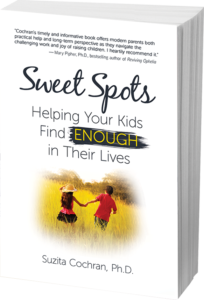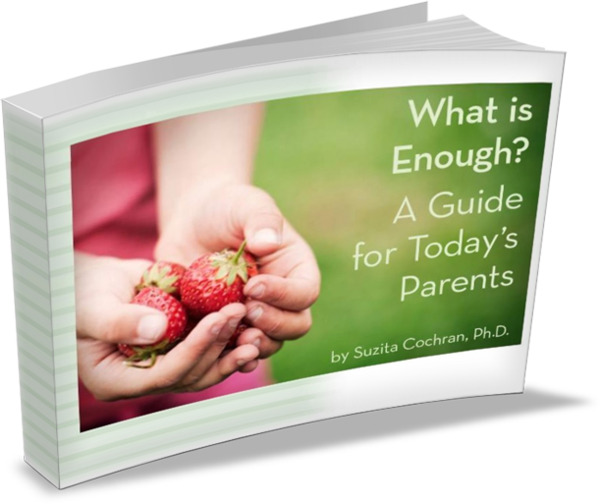 My plan had such potential! Why did it crash and burn so quickly?
My plan had such potential! Why did it crash and burn so quickly?
I wanted to read some Shakespeare with my kids this summer. When I mentioned my idea to a few other parents, one loaned me a version of The Tempest that she and her 10 year-old daughter had loved. It was an adaption written by Lois Burdett, an elementary school teacher from Ontario, Canada. She evidently teaches Shakespeare to 8 and 9 year-olds by changing the plays into long rhyming poems.
Here is her beginning to The Tempest:
I convey you to Europe, off Italy’s coast,
A sorcerer, Prospero, will soon be your host.
As we wait his arrival, cast down your eyes,
The ship below us is near its demise.
It tosses and heaves in the frenzied sea,
The storm boils with anger, wild as can be.
A few pages into Burdett’s Tempest, I began to adore it. I couldn’t wait to read it aloud to my 10 and 12 year-old sons. Yes there was challenging vocabulary, but she also included the well-known passages, such as:
Full fathom five, thy father lies:
Those are pearls that were his eyes,
Sea nymphs hourly ring his knell,
Hark! Now I hear them, ding-dong, bell.
The boys sat patiently at first as I translated the difficult words and summarized tricky sections. They seemed to be following the plot fairly well. A half hour later we quit for bedtime. As we sat down to read the next day, however, each began to balk.
“Why do we have to read this again? I don’t like this.”
I pushed on, hoping they’d settle into it.
But when I corralled Stephen and Daniel for our third session, they mutinied. I couldn’t believe it! Burdett teaches Shakespeare to children younger than mine. I guess I just assumed my kids could do it.
I was so disappointed and frustrated. As I thought about it later, maybe my disappointment was because I myself had enjoyed the reading so much. Finding reading material that is engaging for parents to read aloud is nearly as essential as picking books the child is drawn to. This parent is partial to rhyming books which use interesting vocabulary. Burdett’s Shakespeare was ideal for me.
My first response was to get angry and warn the boys that they weren’t going to pass the summer reading comics. But after I’d cooled down I remembered the words of Adele Faber and Elaine Mazlish in How To Talk So Teens Will Listen and Listen So Teens Will Talk. (Stephen is turning 13 in mid July and I want to be ready.)
“Invite your child to give his or her point of view then ask them to brainstorm ways to solve the problem.” (This is so obvious it hardly merits writing down, but evidently I needed to hear it for the who-knows-how-many-ith time.)
When I asked the boys why they didn’t want to finish The Tempest, Daniel, my 10 year-old, responded that the poetry format was too hard for him to follow, even with my explanations. Stephen reminded me that he’d read Macbeth at school this past year. He said he’d rather read Shakespeare’s actual words on his own, not aloud.
I thought to myself, “Some people spend years of graduate school deciphering Shakespeare, and you’re going to just comprehend it on your own?” But, I didn’t say anything.
Since none of us is at our best right now while living with construction in our basement, I handed this struggle over to Todd. I think he was happy to take a break from fitting glass block into a wall to distribute more light.
Within the next half day Todd had managed to have a constructive discussion with all three kids about some of the academic tasks we’d like them to work on this summer. If you don’t count Shakespeare, mostly it’s math and Spanish, and not a lot mind you. Maybe an extra 1-2 hours each day broken into two sittings. Nothing compared to school.
Possible morals to this story:
- Don’t read Shakespeare when your home is under construction.
- Canadian children have a greater natural love for Shakespeare than American kids?
- Let Todd run any family meeting addressing academic goals.
- Females enjoy Shakespeare in a rhyming poetry format more than males. Accept it and move on.
- Have your kids share their summer wish lists with you before diving full-force into your own.
What am I missing? Advice? Leave a comment below!

 Sweet Spots: Helping Your Kids Find ENOUGH in Their Lives.
Sweet Spots: Helping Your Kids Find ENOUGH in Their Lives.


Love your possible morals. I chuckled as I remembered raising my own kids; a moral that might apply is: Don’t expect ANYTHING to go the way you want it to go! We are learning from our kids just as they are learning from us. My mom bought me a book called “The Children’s Shakespeare” which I enjoyed reading; it’s all in prose and tells the story. That might be a first step so that the stories are already in the kids’ heads when you try again. I admire your efforts. Keep them up! Deirdre
No doubt about it, summer presents its challenges…for us some days are gifts that allow us to grow individually and build our relationships and others are frustrating! Could it be more than a coincidence we hit a wall here at our house this week as well?
I find that it’s good for all of us to get out and get a fresh perspective when we start into a negative spiral.
I wouldn’t say girls like it more than boys…
I ALWAYS skip over poetry in fantasy novels. I don’t understand why people like that stuff. But folks do. Filkers do. Male and female. Just not me. I also can’t stand ballet, but my sister loves it.
I’d rather read real Shakespeare too. How about As you like it or Much ado about nothing? I found the Tempest to be one of the more difficult ones in its original. His light comedies are much easier reads, though my favorite, Twelfth Night is pretty obviously dirty in some parts, even to the modern ear. (I’ve been so disappointed that those parts are cleaned up in many of the movie versions– I saw the BEST adaptation with the Shakespeare company in Chicago many years ago.)
I loved Shakespeare in the park when I was small. Did not get the Tempest, but adored Midsummer’s night’s dream.
Perhaps watching some theater or film adaptations and discussing them would be a good place to start. There are plenty of PG versions of the comedies. I’d recommend starting with Kenneth Branaugh’s Much ado about nothing. There’s also a fantastic modern British remake of that that you can get through Netflix with one of Dr. Who’s sidekicks (the actress, anyway) playing the part of Hero, that really turns it on its head and provides a great discussion about the role of women and marriage and how that has changed over time.
I just found your blog and am reading through old posts. Love it! My kids are 10, almost 8 and almost 6, so I think I need what you’re writing. As for Shakespeare, may I suggest Tales from Shakespeare, by Charles and Mary Lamb (brother and sister)? We’ve read several stories out loud (my kids loved Othello – Othello, really?) and they ask for more. Obviously it’s not word for word, but many of the well known phrases are in there. I think it’s a great way to introduce kids to Shakespeare without bogging down in the play format. The language is still pretty advanced for younger kids, so I spent a bit of time giving definitions and explaining situations. Just a thought. 🙂
Thanks so much! I just wrote this Shakespeare book down and will order it. I appreciate your comment!
I have four ideas for you:
1. Instead of reading it to them, take them to a play. The costumes, music, and fanfare can make it more exciting and “alive”. You can probably find a college or community theater that is doing a production that isn’t too formal or expensive, and would be appropriate for children. Before you go, give them a brief summary of the characters and plot. Afterwards, get ice cream.
2. Go to the library and get books about the Globe Theater, life in Shakespeare’s time, the changing language and how Shakespeare participated in changing it, age-appropriate biographies of Shakespeare, etc. Don’t bother with the old, broken-down, boring-looking books — just get the new, shiny, exciting books. Then leave them lying around you house in strategic places where kids are likely to be lying around. Hopefully, they’ll open a book or two and browse through, developing a bit of an interest in Shakespeare.
3. At our house, we read aloud almost every night (kids are 17 and 11). I find it works well to take turns choosing books so that everybody gets a turn, and to have discussions about what makes a good read-aloud book. The kids are more willing to listen to a book they don’t love when they know that they will have a chance to choose the book for the family. When it’s my turn, I sometimes choose a book that I know is difficult but I want them to hear, but I make sure they are interspersed with fun books.
4. I think you are right when you say you shouldn’t read Shakespeare when your house is under construction. Or to generalize: When you are under stress, cut yourself some slack. Order a pizza and re-read an old favorite. Later, you and the kids can take on a challenge with renewed vigor.
I love your blog — well written, and with such wise thoughts! I just discovered it, and already I’m a fan!
Wow, thanks for all these well thought out ideas! Perhaps I could bring my kids over to your house each evening to listen as you read aloud? Are you anywhere near Boulder? 🙂 I’m kidding of course, sort of. I like that you have everyone pick a book as a way to keep each kid involved. I also like your strategy of leaving good books around the house. This has worked well with my kids in the past for books on other topics I wanted them to read about on their own, (hopefully they aren’t reading this or they’ll know what I’m up to!) but I haven’t done it in a while. I think it would work well with a book about Shakespeare. Thanks for your comments!
I loved reading this!
I am teaching Shakespeare to different age groups myself and find it challenging to get some of the students to connect. What I take from this is that the text is more rewarding for them than any substitute!